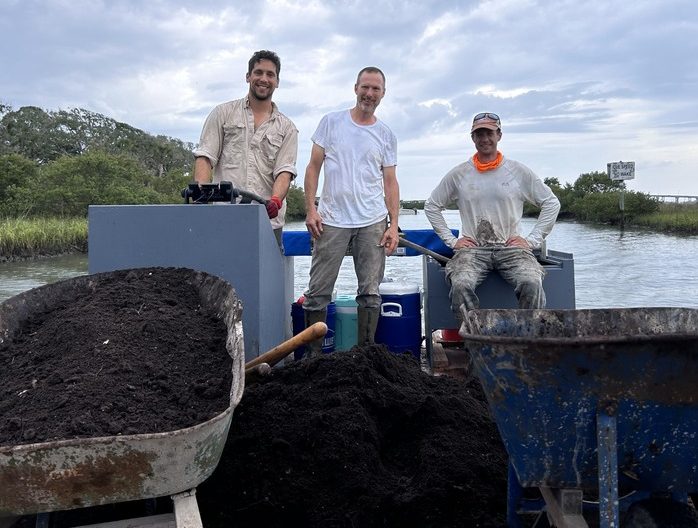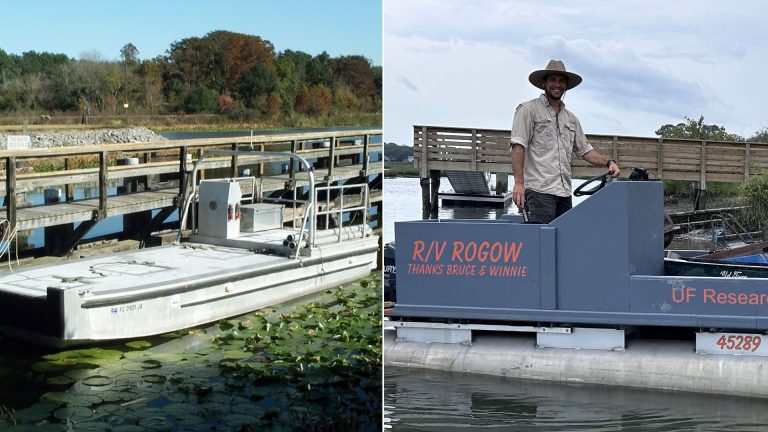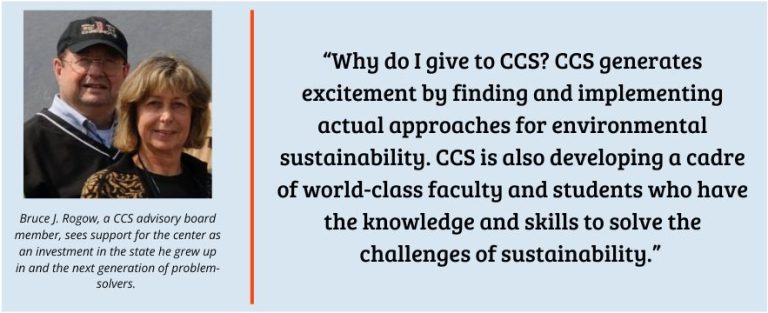In May, the UF Center for Coastal Solutions (CCS) launched its newest research vessel, the “R/V Rogow,” on its maiden voyage to haul more than 20 yards of sediment as part of a marsh restoration project in St. Augustine, Florida. The boat, named in honor of Bruce and Winnie Rogow, was made possible through their generous gift during Gator Nation Giving Day in February. The barge was deployed to support Ph.D. student Adam Hymel in his first major field experiment and will be used in other CCS research projects in future.
“The sediment for this experiment would originally have been brought in using five-gallon buckets trudged through the marsh,” said Hymel, a Ph.D. student in the environmental engineering sciences, who is leading the experiment in St. Augustine. “With the R/V Rogow we are able to work much more efficiently, which is important with our marsh work because we are constrained to a narrow window during which the tides are workable.”

This work is part of a thin layer placement (TLP) project that if successful, can fast track marsh restoration and be applied to TLP projects throughout the southeastern United States. TLP helps marshes keep up with sea level rise from the addition of several centimeters of sediment, but creates stressful conditions for plants and animals to settle. To improve habitat recovery, Hymel will explore ways ribbed mussels and smooth cordgrass can work together to reduce stressful marsh conditions and lead to successful restoration.
Small research vessels often lack the buoyancy and deck space needed to move the significant amount of sediment required for TLP work. The R/V Rogow’s deck, hand built by CCS Director of Field Research Todd Van Natta, can carry two yards of dirt per trip and is sturdy enough for the wear and tear of tools transporting dirt.

“I appreciate the generosity of Bruce and Winnie Rogow,” said Hymel. “The boat was instrumental to the successful implementation of my first major field experiment. This experiment will provide insights towards a rapidly growing restoration strategy and will have real-world applications, so I’m grateful for your investment in the CCS and marsh restoration.”

—
By Megan Sam
